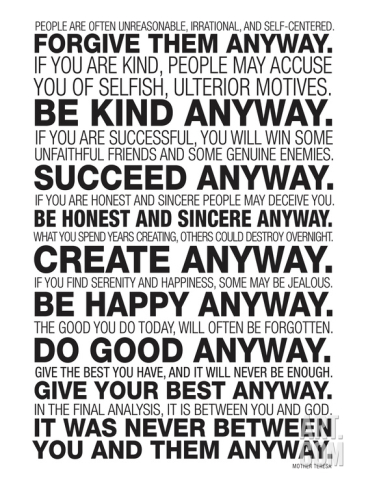Miss S Philip – sphilip@oriel.w-sussex.sch.uk
Teaching Staff
Mrs N Barnes – nbarnes@oriel.w-sussex.sch.uk
Miss C Ryder – cryder@oriel.w-sussex.sch.uk
Mrs B Montague – bmontague@oriel.w-sussex.sch.uk
Philosophy, Ethics and Theology aims to develop students understanding of the world around them and how it is shaped by religious belief as well as teach students how to develop their own opinion and think critically about the world. Following the West Sussex Agreed Syllabus means that we are inclusive of all students from different faith backgrounds and none and allow students to explore the ultimate questions of human existence. We develop student’s ability to give reason for their argument and understand why others may disagree. Our schemes of work are a mix of learning about different religions and cultures as well as considering ethical and moral questions.

Key Stage 3 Overview
In Years 7 and 8 and 9 students study REP for 2 hours over a fortnight and be assessed on 2 skills:
AO1: demonstrating knowledge and insight
AO2: arguing and expressing views
They will study the following topics over the course of the 3 years:

Year 7
| Old Testament | Five Pillars | Social Injustice | Jesus in Art |
|---|---|---|---|
| We look at some of the main stories that form the basis of the Christian and Jewish faith. This includes looking at the meaning behind the stories for people of faith and how they relate to the practices and cultures of people today. | The main focus of this scheme of work is the practices in Islam and the 5 pillars. For instance, we look at how they pray and why these rituals are important to them. We also then look at women in Islam as well as the concept of Jihad and how this is portrayed in the media versus what the word means for Muslims. | We look at key figures throughout history who have fought for civil rights and how religion has influenced them. We look at a range of people from different religious backgrounds for example, Gandhi, Martin Luther King Jr and Muhammad Ali encouraging our students to think critically e.g. debating the advantages and disadvantages of Gandhi’s pacifist approach. | In this scheme of work, we look at different stories about Jesus as represented through different art work. We discuss which artwork best represents what happens in the stories and why artists have chosen to represent the story in this way. We also discuss different representations of Jesus from different parts of the world and why they exist. |
Year 8
| Christian Church | Hinduism | Ethics | Judaism |
|---|---|---|---|
| We look at the different denominations in Christianity and how they came to exist looking at the different practices of each and why those differences exist. | We look at the beliefs of Hindu for instance, their beliefs about God and the afterlife. We then look at how this informs their practices. | We look at various ethical issues and debate them. Students are encouraged to give good reason for their opinion as well as to listen to others. We also discuss what is meant by being “good” or “bad” and whether we can come up with a definitive definition. | We look at Jewish identity and how that has been informed by their history. We look at the practices of Jewish people today as well as persecution faced by Jews and how this effects individuals’ faith. |
Year 9
| Islam | New Testament | Peace and Conflict | Buddhism |
|---|---|---|---|
| We look at the different between Sunni and Shi’a Muslims as well as their beliefs about God, the five pillars, the afterlife and the importance of the prophets for Muslims. | We look at stories from the New Testament that are relevant to Christians today. We look at the concept of salvation and what this means to Christians. | We consider the ethics of war and look at different responses to war. We discuss what the best response might be and look at the disadvantages of each as well. | We look at the story of the Buddha and what Buddhists believe about this life and life after death as well as how this informs their practice. We consider how this non-theistic religion is different to others. |
GCSE overview
Years 10 and 11
Year 10 onwards begins preparation for the RE GCSE. We follow the OCR exam board: http://www.ocr.org.uk/qualifications/gcse-religious-studies-j625-j125-from-2016/
This specification aims to enable students to:
- Become more critical and reflective in their approach to studying religion
- Explore beliefs on key questions and respond personally
- Enhance their spiritual, personal, social and cultural development
- Develop their own values and opinions
Some students will choose a full course GCSE option they will study:
| Christianity beliefs teachings and practices | Islamic beliefs, teachings and practices | Relationships and Family |
|---|---|---|
| This scheme of work covers Christian beliefs about the nature of God, the origin of the universe, the problem of evil and suffering including different responses to it, who Jesus was, salvation and the afterlife. Students will also learn about the practices in different denominations and the importance of them such as baptism, the Eucharist and pilgrimage. | This scheme of work covers Muslim beliefs about the nature of God, the prophets, different attitudes towards Imams, divine justice, the scriptures, the afterlife and the concept of free will and predestination. Students will also study the five pillars and their importance as well as pilgrimage, festivals and Jihad. | Students will learn, debate and discuss different attitudes towards the importance of marriage, divorce, cohabitation, sex before marriage, homosexuality and gender roles in society and within the church. |
| Dialogues between religious and non-religious groups | Peace and conflict | Existence of God |
| Students look at the influence that religion has had on our political structure, the origin of the Church of England and discuss whether or not it is still relevant today. They will look at different attitudes towards different issues in our society like faith schools, abortion, euthanasia, fertility treatment and equality. | Students will consider the causes of conflict and discuss different responses to them and how effective they are. They will look at key figures through history and concepts like just war theory and pacifism. | Students will look at different arguments for and against the existence of God and debate how strong these arguments are. They will look at challenges to God’s goodness and at how people of faith believe God is revealed in the world. |
Some students will choose a short course GCSE, they will study the following topics:
| Christian Beliefs and Teachings | Islam Beliefs and teachings | Relationships and Family | Dialogues between religious and non-religious groups |
|---|---|---|---|
| This scheme of work covers the Christian beliefs about God, the origin of the universe, the problem of evil and suffering including different responses to it, who Jesus was, salvation and the afterlife. | This scheme of work covers Muslim beliefs about the nature of God, the prophets, different attitudes towards Imams, divine justice, the scriptures, the afterlife and the concept of free will and predestination. | Students will learn, debate and discuss different attitudes towards the importance of marriage, divorce, cohabitation, sex before marriage, homosexuality and gender roles in society and within the church. | Students look at the influence that religion has had on our political structure, the origin of the Church of England and discuss whether or not it is still relevant today. They will look at different attitudes towards different issues in our society like faith schools, abortion, euthanasia, fertility treatment and equality. |
A Level Overview
The school offers Philosophy A Level. We follow the AQA exam board
| Epistemology | Moral Philosophy |
|---|---|
| What is knowledge? Perception as a source of knowledge Reason as a source of knowledge The limits of knowledge | Utilitarianism Kantian duty ethics Aristotelian virtue ethics Applied ethics Meta-ethics |
| Metaphysics of mind | Metaphysics of God |
| Dualist theory Physicalist theories | The concept and nature of God Ontological argument Teleological argument Cosmological argument The problem of evil and suffering Religious language |
